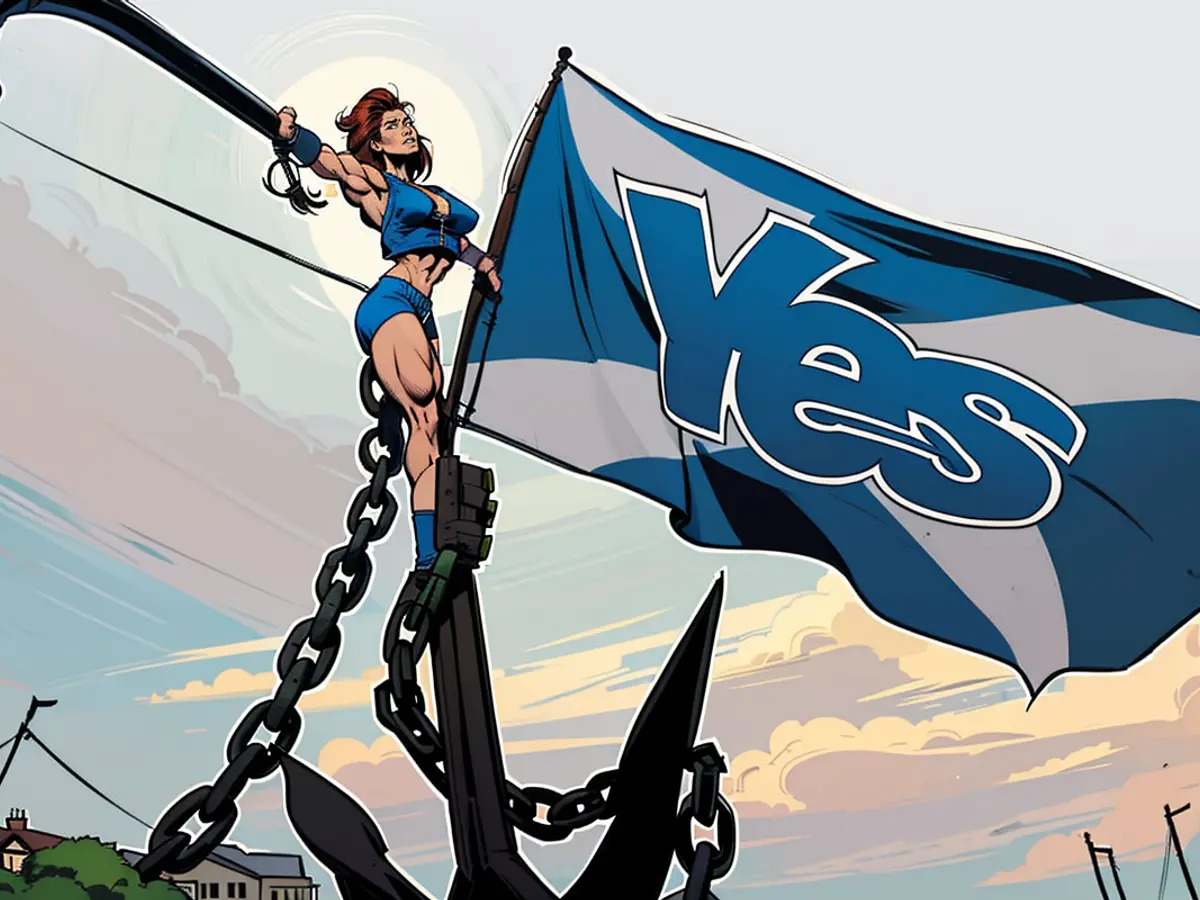The vivacity of Scottish independence aspirations persists.
A decade has passed since Scotland held a referendum on breaking away from the UK, and although the proposal was rejected by a small margin, a notable portion of the population still advocates for independence, reports a political analyst. Kirsty Hughes from the Scottish Centre on European Relations suggests that around half of Scots still favor independence, with a significant majority among the younger generation.
The aftermath of the referendum in 2014 saw Scots voting 55 to 45 against independence. However, support for the idea has slightly increased in the following years, with polls even indicating a narrow majority at times. This buoyant sentiment for independence isn't dampened by the poor performance of the Scottish National Party (SNP) in recent UK parliamentary elections.
According to Hughes, the issue of Scottish independence is far from settled, despite the Labour government and its Conservative predecessor treating it as a settled issue, and the current focus on other matters such as the ailing healthcare system and economic conditions. Hughes posits that a new referendum might be triggered if public support for independence surges and becomes a genuine democratic issue, possibly reaching 60% or above in polls.
Advocates: Brexit leveled the playing field
"It's still a possibility within the next decade," Hughes offers. The independence movement could receive a fresh surge if Northern Ireland's secession from the UK gains momentum once again, she believes. Nicola Sturgeon, the face of the independence movement, remains hopeful of achieving the goal and wrote in The Daily Record, "I am as confident as ever that we will achieve this goal and sooner than currently appears likely. If we succeed, we will begin to build a better Scotland."
Secession supporters argue that Brexit has reshaped the landscape, as a majority of Scots voted against the UK's departure from the EU in the 2016 referendum. The UK government, however, argues that the 2014 referendum was an isolated event and is not willing to entertain the notion of another vote. Supporters of secession maintain that Brexit has indeed altered the playing field.
The European Union has expressed concern over potential secession efforts in the UK, given Scotland's advocacy for independence and its opposition to Brexit. The European Union's President, Ursula von der Leyen, stated during a visit to Edinburgh in 2021 that the EU would always stand by its member states but also emphasized the importance of respecting the territorial integrity of current members.
In light of Brexit, some proponents of Scottish independence argue that remaining in the UK would result in Scotland being bound by decisions made against its will, further bolstering the case for independence within the European Union.








